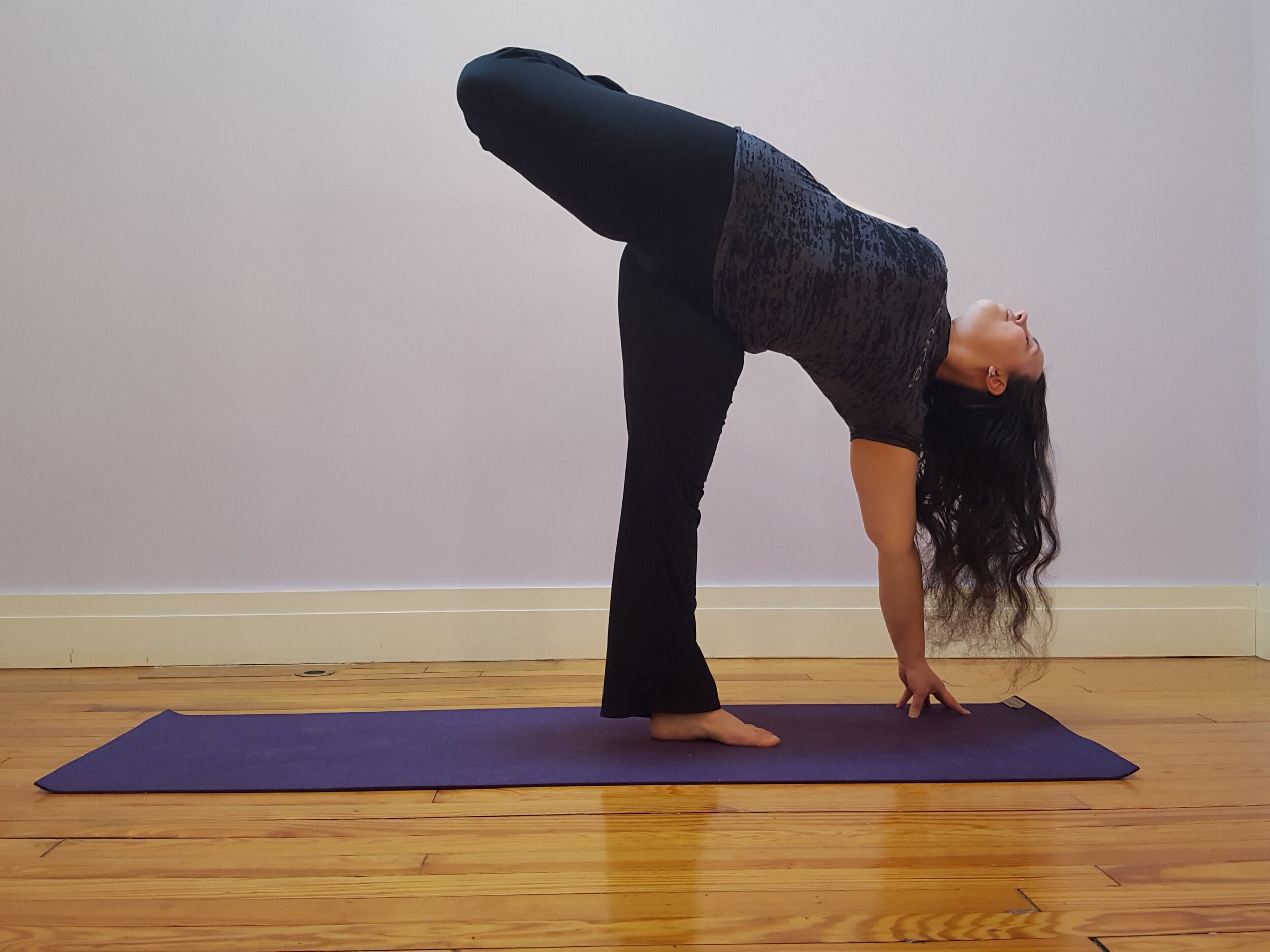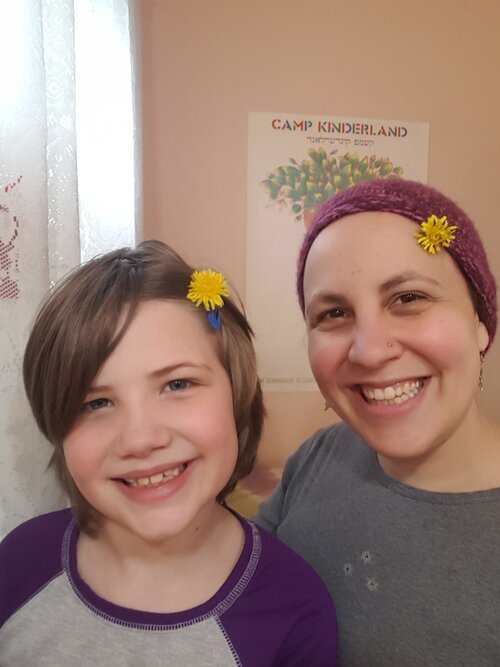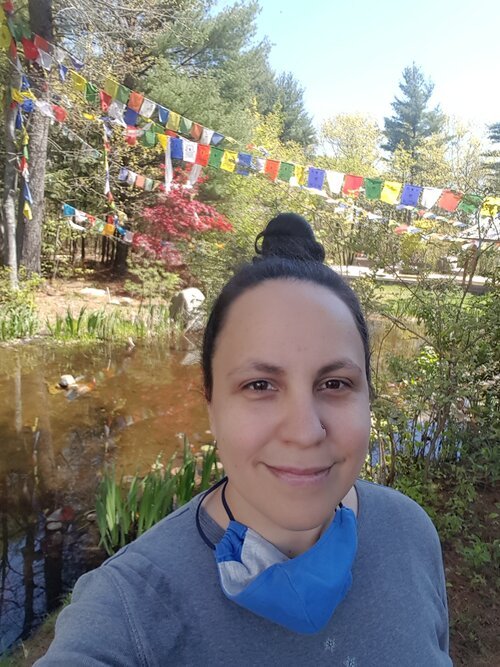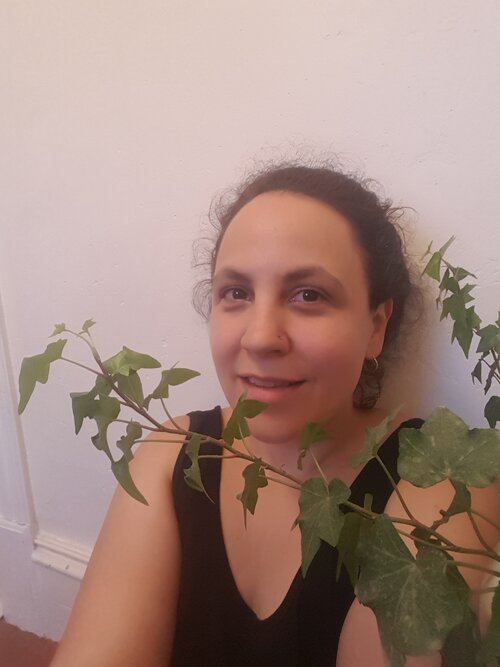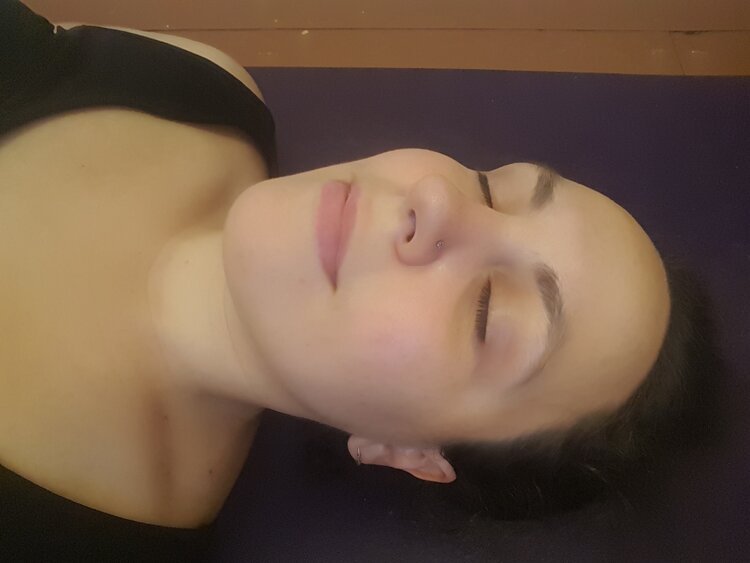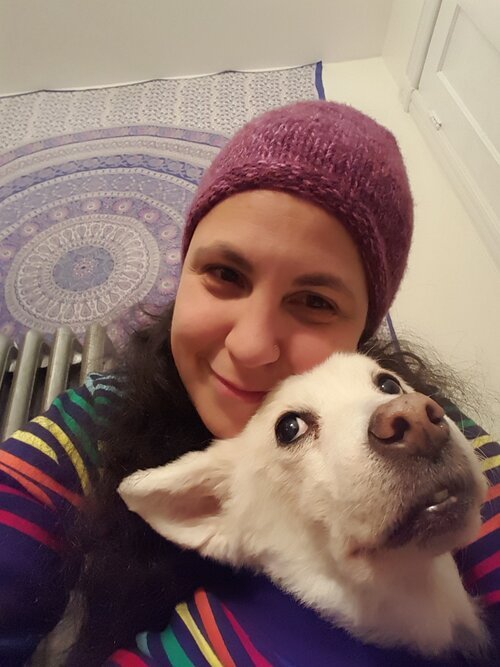Teacher Spotlight: Ellen Morbyrne
Do you remember your first yoga class? What was it like? Why did you enroll?
When I was thirteen, my friend and I left public middle school to begin an adventure in homeschooling. One of the first things she did was to sign up for a public yoga class and invite me along. I had zero understanding or expectation about what a yoga class might be, other than that it seemed like a form of meditative exercise that might not hurt my body the way that organized sports and gym class had for years. We showed up for a Level 1 yoga class on a Friday morning in downtown Northampton, full of adults, imagining that we blended right in and were not obviously children. In that first class I was mystified by many of the shapes and invitations, found balasana (child's pose) to be wildly uncomfortable, found the floor to be a million miles away from my reaching fingertips in uttanasana, and didn't understand much of what was happening around me. But I also felt something profound and unknown and the deep invitation of that mystery, in my body and in my heart and mind. The teacher of that class was Sara Rose. That first class began a journey that has changed my life, and the lives of everyone with whom I interact, forever.
Are there any preconceived notions you had about yoga that changed over time?
I didn't really have any preconceived notions when I began my practice. My appreciation for what yoga is, from where and through whom it comes historically, and what we all gain from being dedicated students of yoga has deepened exponentially over the decades of my practice.
What have you gained from your yoga practice?
Full access to my breath. The capacity to pause, especially in the face of crisis or conflict. A toolkit for embracing my natural tendencies toward anger, fear, and absolutes, and channeling those powerful energies into fuel, clarity, and a delight in nuanced complexity. My natural inclination towards rage (and its smaller-but-no-less-potent cousins irritation and impatience) has become the earth that gives me strength to be quiet and gentle and able to listen; it has become the fire that gives me agency to speak up and speak out and also to step aside and uplift. Yoga has taught me how to be kind to myself and accepting of my mistakes, and to extend that kindness in all directions to everyone else. One can be accountable without diminishing one's inherent worthiness. Yoga practice is what keeps me sane, resilient, and present - whether it is asana on the mat, meditation, thoughtful awareness, or just the remembrance of breath throughout my day.
Why did you want to become a teacher?
I have always been drawn to teaching, whether it was theatre, yoga, history, or any other subject, and whether it was to youth or adults of all ages. One of the best ways for me to engage with and comprehend the world around me has always been for me to have to explain what I'm learning/experiencing to others, and to find as many ways in for as many kinds of learners/thinkers/experiencers as possible. Teaching, especially yoga, is a profoundly healing, nourishing, and humbling practice. It offers me a deep sense of connection to something bigger than myself, and has always felt like the way that I can be of most service to the world.
How would you describe your teaching style?
Grounded in daily practicality, humor, and compassion; rooted in service and the cause of social justice; focused on the huge benefits of learning how to be in the best physical alignment for each of our unique bodies, and to be able to connect our physical and emotional and intellectual alignments to each other.
How do you want a student to feel after your class?
Empowered, nourished, free to be themselves, inspired to be kind and engaged human beings.
How does yoga inform your activism work?
Yoga and my own activism are inextricably entwined. How I breathe and soften and strengthen and grow in my physical and mental practices of yoga are the matrix for how I approach dismantling oppressions like white supremacy, cultural appropriation, ableism, patriarchy, the gender binary, classism, etc. Yoga fuels and clarifies how I engage in this work both in myself internally and in the world with my external actions.

